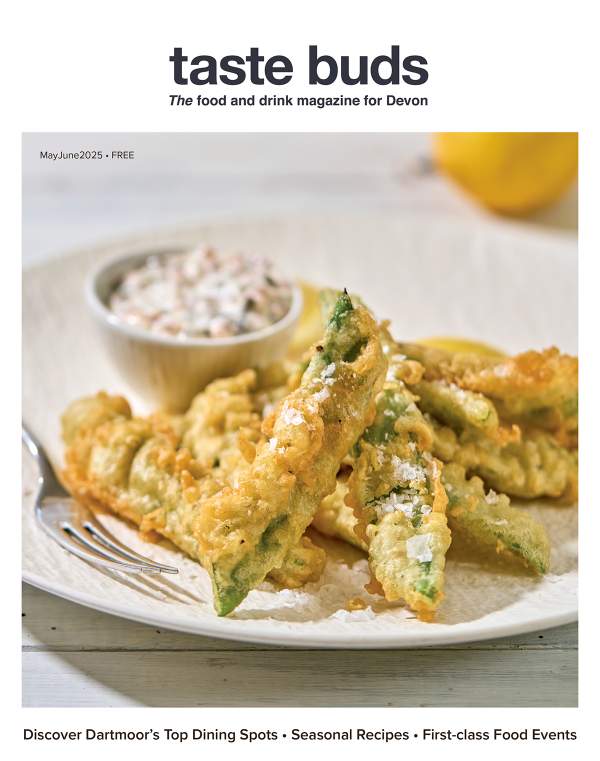On behalf of Food Drink Devon, Martin Hesp chats to two producers about how our county is perfect for dairy-making
It’s no accident that Devon became world-famous for its dairy products. The fact that a classic cream tea sits loud and proud as part of the British cuisine’s central iconography is as well known in Tavistock as it is in Tierra Del Fuego – but it’s the dairy-lands of Devon which, to a large extent, allowed that story to flourish.
If you were modelling a new planet and wanted the ideal recipe for creating perfect dairy-lands, you would put a fertile peninsula in a cool temperate zone that edged its way into a big rain-bearing ocean. You would then make sure the ocean featured a warming current flowing thousands of miles from the south. You would also give the landscape steep hillsides and regular gales to ensure the region wasn’t suitable for large-scale arable farms.
That basically describes the West Country and its warming Gulf Stream. A land of well-watered sheltered valley systems which are capable of providing some of the best grazing in the world.
We can’t eat the region’s rich grass crops, but we know a creature who can. Bovines flourish on the stuff – and the West Country grass allows their milk, cream, butter and cheese to be superior to just about anywhere else around the globe.
Areas like the south-facing valleys of Devon’s Blackdown Hills were once so full with dairy farms that the Victorians spent fortunes building railway lines so that big dairies – at places like Hemyock – could be served with an efficient transport system to take the milk away.
Now many of those farms have, alas, disappeared – but in their place are artisan-based businesses which still rely on the high-quality milk produced from Devon’s grasslands.
Greg Parsons, from Sharpham Dairy, says, “When it comes to producing cheese, Devon’s ideal geographical position for dairy farming does half the work for us. Our fertile soil is made all the better for the rainfall coming down from Dartmoor and the sea breezes from the nearby estuary. The rich milk in our cheese has been the secret to Sharpham’s success for 40 years.”
And here’s Lawrence Glanville, proprietor of Surfing Cow Ice Cream: “Because of our warm coastal climate, the cows stay outside all year round and mostly live on grass – but as well as maize silage, they also eat grass silage, hay and kale in the winter.”
Manager, Lee, adds: “Our farm runs alongside the South West Coast Path, and the nutrient-rich sea air produces lush, green grass which our cows love to eat. It also provides a great habitat for wildflowers, hares, rare birds and hedgehogs.”
At businesses like Sharpham and Surfing Cow, customers buy in to the concept of traditional, eco-friendly farming. “We have large numbers of holidaymakers visiting our local beach in summer, and they are always keen to hear about the farm and the cows that produce the milk for our ice cream,” says Lee.
“Our customers love to see the way we farm in the beautiful Dart Valley,” says Greg. “When the warmer weather comes, cows go back to pasture, which is full of grasses, herbs, trees and blooming hedgerows. The farms are alive with butterflies, bumblebees and birds who play a crucial role in pollination.”
So, help nature do what it does best and ensure you keep your working practices and quality top-notch, and you should be able to reap the benefits. Especially in a year which should see vast numbers of visitors flocking west this summer when the lockdown eases.
As part of its ongoing media partnership with Taste Buds, this is a series of articles written by Food Drink Devon.
Six times a year, delivered to your door
Annual subscription: £18
Single Issue: £4
MayJune 2025 issue out now
Try before you buy. View digital edition
Go to Shop